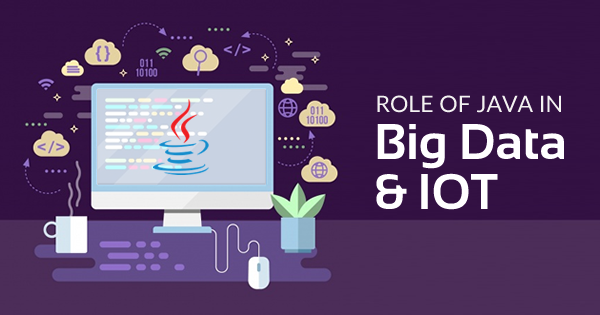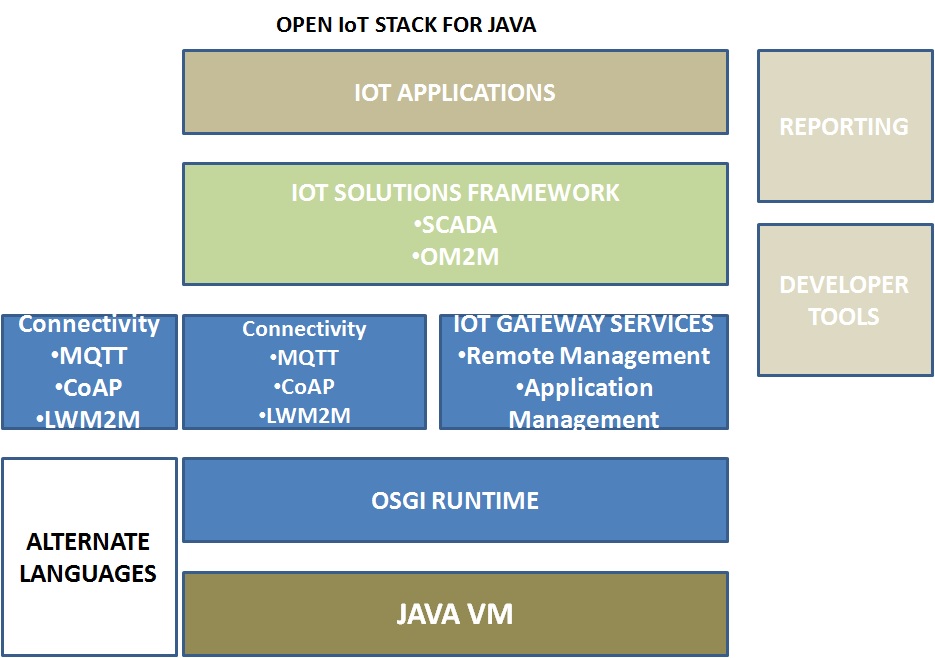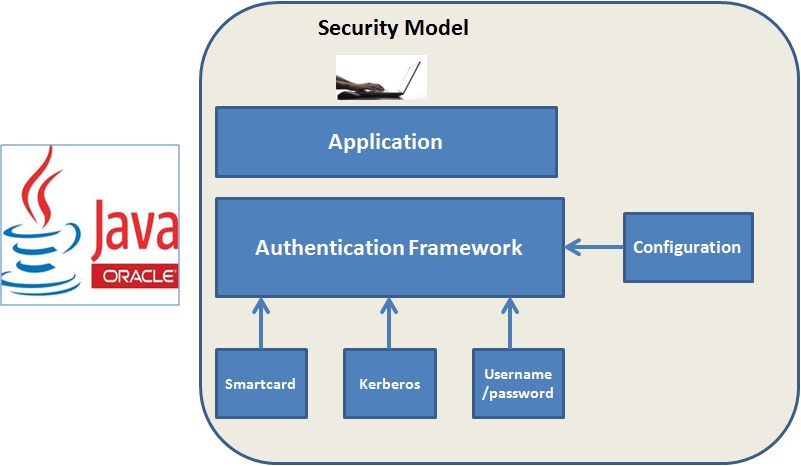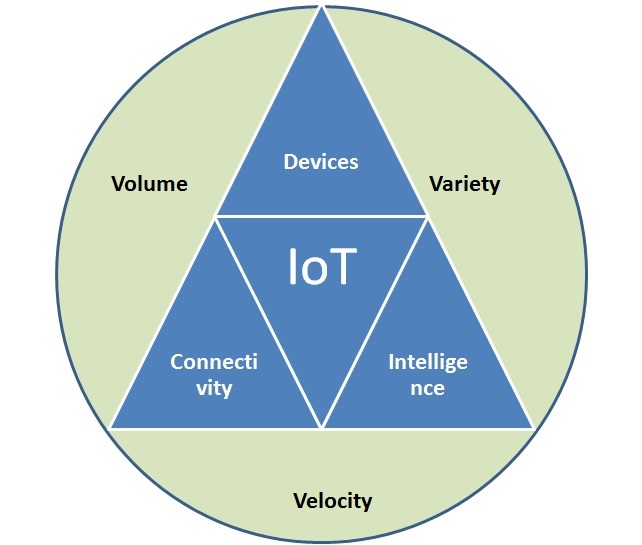Digitization has changed the business model in companies. Today, every market analysis is dependent on data. As a result, the rate at which data is being generated is outpacing our analysis capability. Hence, big data analysis is in place with high-end analytic tools like Hadoop. Hadoop is a Java-based programming framework with high-level computational power that enables to process large data sets.
Thinking to build a career in Big Data? Check out our Big Data Training Courses.
On the other hand, after the internet, the next thing that would take the world by storm may be the Internet of Things (IoT). This technology is based on artificial intelligence and embedded technology. This new wave of technology is meant to enable machines to human-like performance. However, the implementation of an embedded system needs many considerations; and here comes the role of Java in IoT.
Being in the technology space for more than 20 years as a trusted platform for development, Java has not been outdated. Furthermore, its role is ubiquitous even with the latest technology inventions.
In this blog, we will discuss the role of Java in big data and IoT and its credibility in future as well.
What does IoT do?
IoT is a means or technology to collect and manage massive amounts of data from a vast network of electronic devices and sensors, then processing the collected data, and sharing it with other connected devices or units to make real-time decisions. Basically, it creates intelligent devices. Example of such intelligent networking system is an automated security system of a house.
However, enabling the IoT would need programs which will help to easily connect it with other devices to maintain the connectivity all around the system. Here comes Java into the picture with its networking programming capability.
Role of Java in IoT
Here are the features of Java which play critical roles in developing an IoT system.
Platform independence
Platform independence is an important feature when you are developing an IoT system. During the development of an embedded application, you need to consider about the below factors –
- Processor,
- The real-time operating system,
- Different protocols which will be used to connect the devices.
Java ME abstracts all of the above factors. Hence, the developed IoT application can run across the many different devices without changing the code of those applications. It helps to implement write once and prototype anywhere (on different types of hardware platform) facility. As IoT mainly handles embedded system, the developers need to use the software on different chipsets or operating systems as per the requirements.
Big Data and IoT are continuously growing as the technology with the latest trends. Let’s check out the Big Data Trends in 2018.
Portability
Portability over the network is one of the primary reasons for choosing Java for IoT development for almost all devices from desktop computer to mobile use Java. Also with its networking capability, it is an integral part of the internet that makes it a good fit for IoT.
Easy accessibility with the best functionalities
A developer can easily learn Java, and with its best level of object-oriented features, it provides the best level of services in an application. For example, security and scalability are two important parameters in the industry while dealing with IoT devices and Java meets that requirement. With its huge ecosystem in the place, Java makes itself more suitable for the IoT. Hence, developers with advanced Java knowledge are working on innovative IoT solutions to create a connected digital world.
Extensive APIs
Java offers its users the advantage of using an extensive list of APIs which they need to apply rather than rewriting during the making of an embedded application. It makes Java a perfect choice for IoT programmers.
Flexible and easy to migrate
One of the primary reasons IoT programmers incline towards Java is because of its flexibility and virtual availability everywhere. Hence, they can do anything with Java. Additionally, the migration capability of any Java application is high. The reason behind it is if an application is developed using Java, there will not be many issues during the migration to a new platform, and the overall process will be less prone to error.
What are the benefits of using Java for IoT
When we embed Java for IoT, as a user we receive numerous benefits which ultimately reap in the business along with technical enhancement.
Here are some of the benefits mentioned below –
- Higher Resource Availability – Being in technology space over long period Java has built up a strong community that consists of millions of developers around the world. It is a diverse ecosystem, and with a strong community back up, it is easier for a developer to learn Java easily. Hence, it helps to meet the goal of achieving a connected system.
- Enhanced Device Performance – In IoT mainly Java Embedded is used which helps in more enhanced information exchange among devices on a timely basis which makes devices more integrated.
- Enhanced Product Life-cycle due to High Adaptability – With Java, a product gets the ability to upgrade itself according to the business requirements and changes coming up in the market. Moreover, it manages itself with the changes without any glitch. Hence, the overall product life cycle enhances with the use of Java.
- Increased Marketability – Since the product lifecycle gets increased and reusability of the modules, the overall market credibility of the product increases automatically.
- Reduced Support Cost – As Java Embedded provides the ability to auto update and managing a product, the support cost gets reduced significantly.
- Secure and Reliable – With enhanced security feature of Java, any IoT device will get security and reliability assurance over the internet.
What is the Role of Java in Big Data?
When we talk about Big data, the first thing comes in our mind is what does it actually do? Well, big data deals with enormous data set, either formatted or unformatted and process them to provide a valid output to the businesses in the required format. Here are few main purposes of big data-
- To process a huge set of data to get insights of a trend
- To use processed data for machine learning purpose to create automated process or system
- Using big data for complex pattern analysis
For the functionalities as mentioned earlier, mainly tools are used. Some of the popular tools are Apache Hadoop, Apache Spark, Apache Storm and many more. Most of these tools are Java-based, and Java concepts are widely used for data processing.
You can refer to our blog on the Most Popular Big Data Tools for Java Developers to understand the role of Java in Big Data.
Big Data and Internet of Things are Interrelated
As IoT continues to grow, it has become one of the key sources of an infrequent amount of data. The data may be sourced from hundreds to thousands or even larger number of IoT devices as random data. This huge set of data also needs analysis through big data. Thus there is an interdependency of both the technologies where Java works as a common platform.
What will be the Role of Java in Big Data and IoT in Future?
Internet of Things is triggering millions of devices to connect online which is resulting in data more than ever. This huge data needs enough storage and management. For this purpose, big data technologies must be augmented to handle this data effectively. Interestingly the technology giants like Google and Apache are contributing more libraries for these technologies advancement. As we have discussed the role of Java in big data and IoT, it is expected that Java development will play the more aggressive role for the future benefit of these technologies.
Overall, Java has always been considered as a popular and useful technology which is also a trusted platform when compared to all the others programming languages on the market. Though there are numerous programming languages are in place with easier interfaces like Pig, Ruby and many more; still, people show their gravity towards Java. As a result, the numbers of Java programmers are increasing every day.
Thus, whether or not the technologies like big data and IoT change rapidly, the role of Java in Big data and IoT will always remain the same.
No doubt, Java knowledge is important for Big Data professional. In the same way, learning Big Data is important for Java Developers. Read this article, Why Java Developers Should Learn Hadoop.
Conclusion: To conclude, the bottom line is – Java is everywhere. However, if you want to walk with the changing industry trends, then Java is not the ultimate answer for achieving a promising career. You need to ramp up with latest technologies like Big data, Machine learning, IoT, Cloud or similar technologies. However, an effective upgradation needs proper guidance and roadmaps and here comes the role of Whizlabs to help you out in your path of success.
Whizlabs shares expertise knowledge on almost every latest technology. For example, we leverage knowledge from Java to Big data with market-leading certification guides. Our big data certification guides are researched and developed by industry experts and cover complete syllabus from Cloudera Certified Administrator certification and Hortonworks Hadoop Certified Developer certification.
Join us and experience the best result!
- Top 45 Fresher Java Interview Questions - March 9, 2023
- 25 Free Practice Questions – GCP Certified Professional Cloud Architect - December 3, 2021
- 30 Free Questions – Google Cloud Certified Digital Leader Certification Exam - November 24, 2021
- 4 Types of Google Cloud Support Options for You - November 23, 2021
- APACHE STORM (2.2.0) – A Complete Guide - November 22, 2021
- Data Mining Vs Big Data – Find out the Best Differences - November 18, 2021
- Understanding MapReduce in Hadoop – Know how to get started - November 15, 2021
- What is Data Visualization? - October 22, 2021






Great article! Considering the role of Java in Big data and IoT, As a growing number of people are connecting their devices online, the internet of things is triggering and producing the bulk of data that stresses on the need for Big Data technologies to store, manage and mine the data efficiently so that enterprises can use it to develop actionable insights. So, to store and analyze data, Java is expected to play an important role in big data and the Internet of Things.